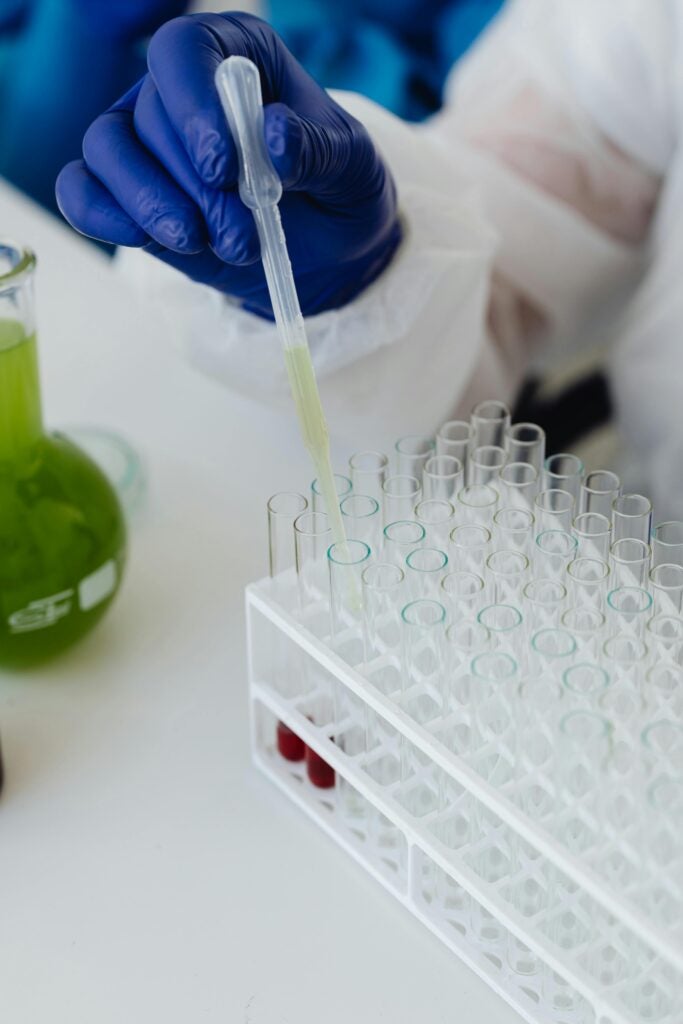GSSP Courses
Check out the 2025 GSSP Course Schedule
Introductory Data Science with Python and Tableau
DSA1361
Introductory Data Analysis with Python and Tableau (2 units)
Instructor
Dr Chan Yiu Man
Course summary
This course will provide participants with a foundation on what data science is. There will be a focus on linking business questions to statistical techniques, and linking analytical results to business value. By the end of the course, participants will know how to make sense of data using simple statistical techniques and how best to visualize data. Two software that are very widely used in the data science industry will be introduced in this class: Tableau for data visualisation and presentation, and Python for data analysis.
Syllabus
1. Ideas for data visualisation. In this topic we cover some general recommendations when making visualisations. For instance, we discuss the use of colours, types of plots, good graphics and bad graphics.
2. Methods for Data Visualisation. We introduce Tableau; an intuitive software for creating multivariate interactive graphics.
3. Exploratory Data Analysis. We introduce data summaries,transformations, outlier inspection and other such tools to understand the data we have before we proceed to a deeper analysis.
4. Hypothesis testing. Tests based on linear models (t-tests, ANOVA) will be used to introduce the concepts of hypothesis testing and statistical logic.
5. Linear regression. We introduce the assumptions behind the linear regression model. We then demonstrate model fitting and residual analysis to fully comprehend the model and analysis.
6. Topics 3 to 6 will be covered in Python, through the use of Jupyter notebooks, which are widely used in the data science industry. This will enable students to easily pick up and use source code from repositories such as github and bitbucket. Thus, the course will also introduce git – the version control software that is used by almost all data scientists.
Preferred basic knowledge
NIL
Assessments
Quizzes/ Tests: 60% (3 quizzes, 20% each)
Project/ Group Project: 30%
Class Participation: 10%
Prerequisites and preclusions (for NUS students)
NIL
This course will provide participants with a foundation on what data science is and will focus on linking business questions to statistical techniques, and linking analytical results to business value. Participants will learn how to make sense of data using simple statistical techniques and how best to visualize data. Tableau for data visualisation and presentation, and Python for data analysis will be introduced in the class.
(Can be read together with DSA2362)


Decision Trees for Machine Learning and Data Analysis
DSA2362
Decision Trees for Machine Learning and Data Analysis (2 units)
Instructor
Prof Loh Wei-Yin
Course summary
Decision tree methods predict the value of a target variable by learning simple decision rules from the data. In this course, participants will learn decision tree methods and how to use software to build predictive models and score variables in terms of their importance. They will use real data to compare the strengths and weaknesses of decision tree models with those obtained by linear and logistic regression and discriminant analysis. Participants will also learn how to handle data with missing values without requiring prior imputation. Possible applications include economic surveys, credit card data, vehicle crash tests data and precision medicine.
Preferred basic knowledge
- Enrolled students should bring a laptop to use during class.
- Those without prior experience with using R (write functions, install and use packages) will be asked to take a few DataCamp R courses to pick up such necessary skills. DataCamp courses are online courses.
Assessments
Class Participation: 10%
Essay: 15%
Quizzes/Tests: 75% (3 tests, 25% each)
Prerequisites and preclusions (for NUS students)
Prerequisite: DSA1361 or department approval (Can be read together with DSA1361)
Decision tree methods predict the value of a target variable by learning simple decision rules from the data. Use real data to compare the strengths and weaknesses of decision tree models with those obtained by linear and logistic regression and discriminant analysis. Possible applications include economic surveys, credit card data, vehicle crash tests data and precision medicine.
(Can be read together with DSA1361)

Instructor’s Profile
Prof Loh Wei-Yin has BSc. (Hons.) and MSc. degrees in mathematics from the University of Singapore and a PhD in statistics from the University of California, Berkeley, and is currently Professor of Statistics at the University of Wisconsin, Madison. He has been developing algorithms for classification and regression trees for thirty-five years and is the author of the GUIDE algorithm (www.stat.wisc.edu/~loh/guide.html). He has taught short and semester-long courses on the subject in the U.S., Hong Kong, Taiwan, South Korea, Malaysia, and Singapore. Professor Loh is a fellow of the American Statistical Association and the Institute of Mathematical Statistics and a consultant to government and industry. He is a recipient of the Benjamin Reynolds Award for teaching, the U.S. Army Wilks Award for statistics research and application, and an Outstanding Science Alumni Award from the National University of Singapore.
Forensic Toxicology and Poisons
FSC4203
Forensic Toxicology and Poisons (4 units)
Instructors
Prof Stella Tan
Prof Ho Han Kiat
Prof Koh Hwee Ling
Dr Shawn Lee
Course summary
Ever wondered how much of the coffee you consumed is subsequently metabolised? Find out using forensic toxicology! This multidisciplinary course aims to support medical and legal investigations into the cause of death, poisoning and adverse responses to substances. Drawing from foundational principles in toxicokinetics, participants will be able to: study the physicochemical properties of substances and their effect(s) on the host; and consider the toxicological outcomes of exposure due to the unique handling of substances by organ systems. The lectures will conclude with real-life applications led by practitioners.
Preferred basic knowledge
Forensic science, pharmacy, pharmacology, law and/or chemistry
Assessments
Practical report: 10 %
Assignments: 25 %
Class participation: 25 %
Moot Court (Team presentation) based on CSI Practical: 15%
Oral viva: 25 %
Prerequisites and preclusions (for NUS students)
Prerequisite: FSC2101/LSM1306 or department approval
Preclusion: LSM4211 or SP4263
Ever wondered how much of the coffee you consumed is subsequently metabolised? Find out using forensic toxicology! This multidisciplinary course aims to support medical and legal investigations into the cause of death, poisoning and adverse responses to substances. Drawing from foundational principles in toxicokinetics, participants will be able to: study the physicochemical properties of substances and their effect(s) on the host; and consider the toxicological outcomes of exposure due to the unique handling of substances by organ systems. The lectures will conclude with real-life applications led by practitioners.

Instructor’s Profile
Prof Stella Tan is the Faculty’s Assistant Dean (Undergraduate Studies and Student Life) and Director of the Forensic Science Programme in NUS. She possesses postgraduate academic qualifications in law, forensic science and science. She was a Dean’s Lister at NUS’ Law Faculty and graduated top of her postgraduate class under the tutelage of Dr Henry Lee, a renowned forensic expert, in the United States of America.
In her previous appointment as Deputy Senior State Counsel, Attorney-General’s Chambers, Prof Tan was the lead prosecutor for a wide range of cases, including murder, sexual assault and drugs. She also held the appointment of Director (Prosecution and Legal Policy) at the Health Sciences Authority, where she provided legal advice and practical training to forensic experts.
Prof Tan represents Singapore at the International Standards for Forensic Sciences. She is also the Principal Investigator of the NUS Forensic Science Laboratory, where her collaborators include the Massachusetts Institute of Technology, Singapore Police Force and Central Narcotics Bureau. She has co-authored papers on stem cell research, therapeutic cloning and germline modification for the National Bioethics Advisory Committee. She also delivers forensic science lectures at the Singapore Judicial College. Her interest in nurturing students won her consecutive Dean’s Meritorious Teaching Awards.

Instructor’s Profile
Prof Ho Han Kiat is currently an Associate Professor at NUS’ Department of Pharmacy and Deputy Head of the Department.
He received his B.Sc. (Hons) in Pharmacy from NUS in 2000, and subsequently his Ph.D. in Medicinal Chemistry from the University of Washington in 2005, under a scholarship from the Agency of Science, Technology and Research (A*STAR).
After completing a three-year postdoctoral stint at the Institute of Medical Biology, A*STAR, he joined NUS as a faculty member, building his own research programme focusing on drug-induced liver toxicity, as well as exploring new drug targets for liver cancer and liver fibrosis. In addition, he directs a toxicology division within a newly founded Drug Development Unit in NUS.
Prof Ho holds a joint appointment in the University Scholars Programme and is an elected fellow of the NUS Teaching Academy. He has published about 80 papers in internationally recognised journals and has won multiple faculty- and university-level teaching excellence awards.

Instructor’s Profile
Prof Koh Hwee Ling obtained her B.Sc. (Hons) and M.Sc. in Pharmacy from NUS, as well as a Ph.D. degree from the University of Cambridge.
She is a registered pharmacist with the Singapore Pharmacy Council. Her research areas include quality control and safety of botanicals, Traditional Chinese Medicine, and drug discovery from medicinal plants.
She is a technical/expert assessor with the Singapore Accreditation Council, Enterprise Singapore and serves on various committees including the Agri-Food and Veterinary Authority Advisory Committee on Evaluation of Health Claims; Complementary Health Products Advisory Committee, Health Sciences Authority; United States Pharmacopoeia Expert Panels: Screening for undeclared drugs and drug analogs Expert Panel; and the Herbal Medicine Compendium, East Asia Expert Panel.
She has published three books, namely: “A guide to medicinal plants: An illustrated, scientific and medicinal approach”, “Ginseng and ginseng products 101 – What are you buying?”, and “Medicinal plants and malaria: Applications, trends and prospects”.

Instructor’s Profile
Dr Shawn Lee is a lecturer at the Department of Biological Sciences. He graduated with a B.Sc (Hons) in Life Sciences, with a specialization in Molecular and Cell Biology, and a minor in Forensic Science. He did his Ph.D at the Institute of Molecular and Cell Biology, A*STAR, with a focus on RNA Biology and viruses. Throughout this time, he remained active as a Teaching Assistant in various Forensic Science modules. In addition to conducting lessons for undergraduate and master students in Forensic Science, he is also currently active in the Forensic Science Research Laboratory, with interests in Forensic Entomology and Forensic Toxicology.

Note:
- Courses are taught on a graded basis and grade(s) will be reflected on your transcript.
- Courses listed above are correct at the time of update, but may be subject to changes.
- There may be further updates to the curriculum of the courses listed.
- The Faculty of Science reserves the right to cancel any course, if there is insufficient enrolment to start a class.


